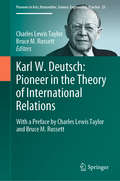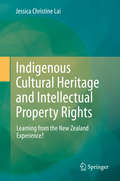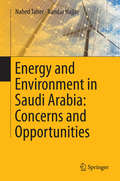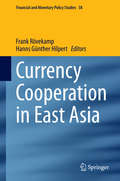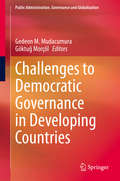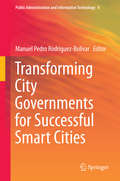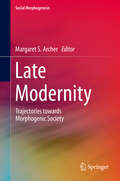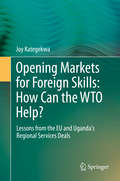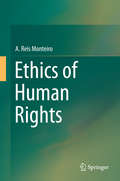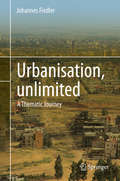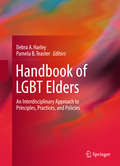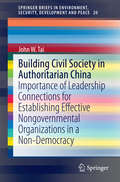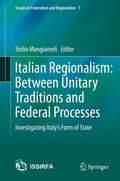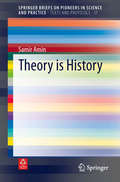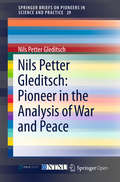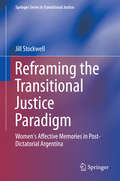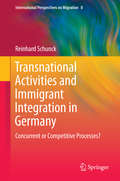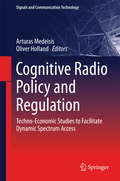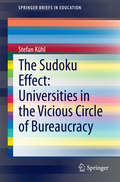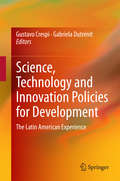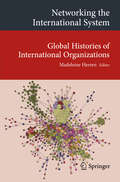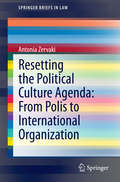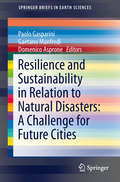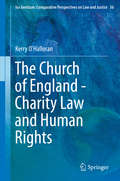- Table View
- List View
Karl W. Deutsch: With a Preface by Charles Lewis Taylor and Bruce M. Russett (Pioneers in Arts, Humanities, Science, Engineering, Practice #25)
by Bruce M. Russett Charles Lewis TaylorThis is a memorial for Karl Wolfgang Deutsch, a pioneering political scientist, international relations specialist and peace scholar of the 20th century. Born in Prague, he was a professor at MIT, Yale and Harvard and spent a decade at the Social Science Center Berlin (WZB). He was a global leader in the theory and scientific analysis of international relations and comparative politics who published on nationalism, social communication, European integration, war and peace, arms control, social cybernetics, general systems analysis, and global modelling. He pioneered the development and analysis of large-scale political and social data across nations and over time and proposed a widespread access to these data and their scientific evaluation. This book offers biographical data on Karl W. Deutsch, reproduces chapters from his PhD thesis and his book Nerves of Government. Colleagues from the USA (A.S. Markovits, H. Alker, R.L. Pfaltzgraff, Jr.,P. J. Katzenstein, T.R. Cusack, C.L. Taylor), Germany (D. Senghaas, R. Wildenmann, R. Mackensen, K. v. Beyme) and the Czech Republic (M. Hroch) offer Collegial Critiques and Memorials. It provides a comprehensive bibliography of his publications and memorials for a great scholar, a superb academic teacher and world citizen.• Karl Wolfgang Deutsch was a major global pioneer in Political Science, internationalrelations and peace research in the 20th century.• His most creative contributions were the concept of social mobilization, the use of cyberneticsto study human relationships, the introduction of politics in world modeling, and the role of communication in governance.• He was president of the American Political Science Association (1969-70) and of theInternational Political Science Association (1976-79) and was a Director of the SocialScience Research Center Berlin (1977-87).• Academics, including graduate students, exploring nationalism, political integration,social communications, cybernetics, and global modeling will find this volume instructive.
Indigenous Cultural Heritage and Intellectual Property Rights
by Jessica Christine LaiNow more than ever, indigenous peoples' interests in their cultural heritage are in the spotlight. Yet, there is very little literature that comprehensively discusses how existing laws can and cannot be used to address indigenous peoples' interests. This book assesses how intangible aspects of indigenous cultural heritage (and the tangible objects that hold them) can be protected, within the realm of a broad range of existing legal orders, including intellectual property and related rights, consumer protection law, common law and equitable doctrines, and human rights. It does so by focusing on the New Zealand Māori. The book also looks to the future, analysing the long-awaited Wai 262 report, released in New Zealand by the Waitangi Tribunal in response to allegations that the government had failed in its duty to ensure that the Māori retain chieftainship over their tangible and intangible treasures, as required by the Treaty of Waitangi, signed between the Māori and the British Crown in 1840.
Energy and Environment in Saudi Arabia: Concerns & Opportunities
by Nahed Taher Bandar HajjarThe vast oil resources in Saudi Arabia have for decades encouraged a generous system of oil subsidies, making the Kingdom one of the leading countries in the world with the cheapest domestic price of oil. Such subsidies have, however, encouraged inefficient utilization of oil, which is largely consumed in the power, water and transportation sectors, contributing substantially to CO2 emission in the country. These problems are exacerbated by demographic dynamics, urbanization, changes in income and consumption patterns, and industrialization. On current trends of domestic consumption patterns, Saudi Arabia will consume the whole of the oil it will produce by 2030, which will reflect negatively on the financial capacity of the government to execute its development programs. It is this revenue constraining concern, rather than ecological challenges, that has started to attract policy attention in Saudi Arabia. This book gives a unique perspective on these challenges by looking at them as investment opportunities, not financial constraints on the government budget. It sets out to examine the nature and extent of the energy and environmental challenges facing Saudi Arabia, and to explore various options for turning these challenges into profitable investment opportunities that could create jobs, boost income, develop capability in clean energy technology and promote environmental sustainability.
Currency Cooperation in East Asia (Financial and Monetary Policy Studies #38)
by Frank Rövekamp Hanns Günther HilpertThis book explores the opportunities and limits of currency cooperation in East Asia. Currency issues play an important role in the region. The Asian crisis of the late 90s was rooted in deficient currency arrangements. The Chinese RMB is not freely convertible yet, but policymakers in China nevertheless aim for a more international role of the Chinese currency. The recent change of direction in Japanese monetary policy caused a drastic depreciation of the Yen and led to warnings against a possible "currency war", thus demonstrating that currency issues can also easily lead to political frictions. Most trade in and with the East Asian zone on the other hand is still conducted in US $. Against this background different modes of currency cooperation serve the goal of smoothing exchange rate fluctuations and capital flows. They are an important element to promote financial stability and to reduce the transaction cost for foreign trade or investment. The contributions of this book analyze the environment and design of currency cooperation in East Asia and their effects from a macro-and microeconomic viewpoint.
Challenges to Democratic Governance in Developing Countries (Public Administration, Governance and Globalization #11)
by Gedeon Mudacumura Göktuğ MorçölDespite the large amounts of human and financial resources invested to foster democratic governance in developing countries, statistics show that the majority of these countries have not yet achieved significant improvements in living standards. While some regions make strides towards improving the living conditions of their citizens, Sub-Saharan Africa, for instance, is still trapped in poverty with more than 40% of its 600 million people living below the internationally recognized absolute poverty line of one US dollar per day. Poor governance and corruption should be highlighted as the most important systemic factors contributing to poverty in developing countries. As a result the institutional foundations of these countries are weakened, public funds are misappropriated, and policies and programs aimed at reducing poverty and fostering sustainable economic growth are undermined. It is therefore not surprising that a 2008 Transparency International report found a direct link between corruption and the failure of the societal institutions designed to achieve the Millennium Development Goals in the majority of developing countries. This book investigates the problems of democratic governance, particularly as they relate to corruption, and also whether democracy should be based on universal principles or local context and historical factors. It also analyses the rule of law, in promoting democratic governance and curbing corruption and if governmental, non-governmental organizations, and civil societies are effective in promoting democratic governance and curbing corruption. This book will go beyond identifying the challenges and offer plausible solutions that could be adapted to various developing countries. It is premised on the importance of bridging theory and practice, which has been lacking in most local and international development publications, making of interest to scholars and policy-makers alike concerned with public administration in developing countries.
Transforming City Governments for Successful Smart Cities
by Manuel Pedro Rodríguez-BolívarThere has been much attention paid to the idea of Smart Cities as researchers have sought to define and characterize the main aspects of the concept, including the role of creative industries in urban growth, the importance of social capital in urban development, and the role of urban sustainability. This book develops a critical view of the Smart City concept, the incentives and role of governments in promoting the development of Smart Cities and the analysis of experiences of e-government projects addressed to enhance Smart Cities. This book further analyzes the perceptions of stakeholders, such as public managers or politicians, regarding the incentives and role of governments in Smart Cities and the critical analysis of e-government projects to promote Smart Cities' development, making the book valuable to academics, researchers, policy-makers, public managers, international organizations and technical experts in understanding the role of government to enhance Smart Cities' projects.
Late Modernity
by Margaret S. ArcherThis volume examines the reasons for intensified social change after 1980; a peaceful process of a magnitude that is historically unprecedented. It examines the kinds of novelty that have come about through morphogenesis and the elements of stability that remain because of morphostasis. It is argued that this pattern cannot be explained simply by 'acceleration'. Instead, we must specify the generative mechanism(s) involved that underlie and unify ordinary people's experiences of different disjunctions in their lives. The book discusses the umbrella concept of 'social morphogenesis' and the possibility of transition to a 'Morphogenic Society'. It examines possible 'generative mechanisms' accounting for the effects of 'social morphogenesis' in transforming previous and much more stable practices. Finally, it seeks to answer the question of what is required in order to justify the claim that Morphogenic society can supersede modernity.
Opening Markets for Foreign Skills: How Can the WTO Help?
by Joy KategekwaThe Mode 4 commitments of WTO Members are narrow and shallow. Even though trade negotiations for enhanced Mode 4 access started well before the launch of the DDA- prospects for success are thin. These negotiations followed a traditional mercantilist approach- with limited attention to the underlying difficulties countries face in letting people into their borders, either generally, or on the basis of a WTO GATS commitment. This Book argues that this approach alone will not succeed. It proposes a focus not on trading market access concessions only, but on discussions aimed at understanding each other's regulatory approaches. To date, in terms of the literature available, we know very little about how WTO Members are managing their Mode 4 commitments. We know even less about how the WTO could learn from clearly more advanced steps in regional liberalization processes. This Book addresses these issues- through case studies of market access and national treatment commitments, and regulatory approaches in Economic Integration Agreements of a select group of WTO Members.
Ethics of Human Rights
by A. Reis MonteiroThis volume focuses on the ethical significance of human rights, aiming at contributing to a universal culture of human rights with deep roots and wide horizons. Its purpose, scope and rationale are reflected in the three-part structure of the manuscript. Part I has a broad introductory historical, theoretical and legal character. Part II submits that an Ethics of Human Rights is best understood as an Ethics of Recognition of human worth, dignity and rights. Moreover, it is argued that human worth consists in the perfectibility of the human species, rooted in its semiotic nature, to be accomplished through the perfecting of human beings, for which the right to education is key. In Part III, the main legal and political outcomes of the Human Rights Revolution are described and answers to the most lasting and common criticisms of human rights are provided. To conclude, the human stature of the Big Five drafters of the Universal Declaration of Human Rights is profiled and the priority that should be recognized to human rights education is highlighted. Some appendices supplement the manuscript. While making a case for the high value and liberating power of the idea and ideal of human rights, objections, controversies and uncertainties are not at all overlooked and emerging issues are explored. The diversity of content of this volume meets many needs of the typical syllabus for a human rights course.
Urbanisation, unlimited
by Johannes FiedlerIn a series of essays, the process of urbanisation - a human mega-trend acquiring unprecedented scale and speed as globalisation proceeds - is examined in the most diverse contexts and stages of development. Drawing on scientific references and identifying recurring themes like dispersion, privatisation and vitality, Fiedler devises the glossary for a cross-cultural understanding of the global urban system emerging. Images and anecdotal evidence reconnect these themes to local realities. The tone of the essays conveys a post-voluntarist attitude, derived from many years of professional experience - critical of both neoliberal practices and determinist ideas. To "condemn the reality" of global urbanization "is fruitless", writes Johannes Fiedler in this unlimited view of a world of constant motion, subject no longer to just its planetary rotations, but also to the constant push and pull of its various populations, some of whose giant constructions shift the earth's axis. From the foreword by Lars Lerup
Handbook of LGBT Elders
by Debra A. Harley Pamela B. TeasterThis groundbreaking resource presents a wealth of findings and perspectives previously unseen in the LGBT literature. Its focus on psychological, sociopolitical and care delivery issues affecting LGBT elders reveals both the nuanced interplay between diverse sources of identity and multiple sources of stigma and discrimination. Specific chapters highlight challenges and resiliencies impacting subpopulations (e. g. , racial groups, veterans, immigrants), examine employment and advocacy issues, discuss later-life concerns in context and offer guidelines for relevant, ethical practice. Contributors represent a wide range of fields from psychiatry and gerontology to public health and public policy, reflecting the scope and needs of this diverse and complex population. Among the topics in the Handbook: Family relationships of older LGBT adults. The intersection of identities: race, age, sexuality and care network. Bisexuality: an invisible community among LGBT elders. Implications of the Supreme Court ruling on same-sex marriage. No money, no work and you're old. Disabilities among LGBT elders: responses of medicine, public health, rehabilitation and social work. Handbook of LGBT Elders is an essential reference for mental health professionals, psychologists and social workers who work with the LGBT community and the elderly, as well as researchers interested in the LGBT community and aging.
Building Civil Society in Authoritarian China: Importance of Leadership Connections for Establishing Effective Nongovernmental Organizations in a Non-Democracy (SpringerBriefs in Environment, Security, Development and Peace #20)
by John W. TaiHow is modern civil society created? There are few contemporary studies on this important question and when it is addressed, scholars tend to emphasize the institutional environment that facilitates a modern civil society. However, there is a need for a new perspective on this issue. Contemporary China, where a modern civil society remains in a nascent stage, offers a valuable site to seek new answers. Through a comparative analysis of nongovernmental organizations (NGOs) in today's China, this study shows the importance of the human factor, notably the NGO leadership, in the establishment of a modern civil society. In particular, in recognition of the social nature of NGOs, this study engages in a comparative examination of Chinese NGO leaders' state linkage, media connections and international ties in order to better understand how each factor contributes to effective NGOs.
Carl Friedrich von Weizsäcker: Major Texts in Philosophy (SpringerBriefs on Pioneers in Science and Practice #23)
by Michael DrieschnerThis book presents a collection of texts by the German philosopher and physicist Carl Friedrich von Weizsäcker (1912-2007), for use in seminars on philosophy, mainly epistemology and the philosophy of physics or foundations of quantum mechanics, but also for courses on German philosophy of the 20th century or the philosophy of science. Most texts appear in English for the first time. Weizsäcker became famous through his works in physics, later becoming well known as a philosopher and an analyst of contemporary culture and politics. He worked intensively on projects for the prevention of nuclear war and for peace in general. - Texts about classical philosophy are included as well as on logic, on the philosophy of biology and on the philosophy of mathematics, on "death" as well as on "power".
Italian Regionalism: Between Unitary Traditions and Federal Processes
by Stelio MangiameliThe object of this book is to describe the institutional modifications of the Italian form of state more than ten years after the review of Title V - Part II of the Italian Constitution - for an audience that goes well beyond the Italian national boundaries. The fifteen essays that make up the book discuss the birth and evolution of the Italian regionalism (including those regions with Special Statutes) as well as reforms of 1999-2001. A particular attention is devoted to the role of autonomy in defining regional statutes, regional forms of government, and regulatory and administrative powers. These are subjects on which there is by now an abundant body of constitutional case law, which is extensively referred to by the chapters. The role of the regions vis-à-vis the local bodies and vis-à-vis the European and international order is also discussed, as the right to negotiate with foreign powers has now been conferred on the regions. Lastly, the volume presents contributions on regional finance and on the new law on fiscal federalism, as well as on regional powers in the area of health and welfare.
Theory is History
by Samir AminThis book focuses on a central concept that "Theory is History", as the theory of capitalism can only be formulated on the basis of an analysis of its history. In contrast, bourgeois thinking replaces the analysis of historical capitalism with an abstract theory without any links to reality. "Economics", which is the theory of an imaginary system, then becomes an apologia intended to give legitimacy to the behaviour of the owners of capital. The author pays special attention to the globalization of the law of value. The individual chapters illustrate the author's thesis by focusing on the links between capital and land ownership, between modernity and religious interpretation, and on questions of the global expansion of capitalism, particularly the ways it has evolved in certain countries, in this case Russia and China. This anthology supplements the author's previous work, centred on the rise of the South--his reading of capitalism focusing on its imperialist nature.
Nils Petter Gleditsch: Pioneer in the Analysis of War and Peace
by Nils Petter GleditschThis book presents Nils Petter Gleditsch, a staff member of the Peace Research Institute of Oslo (PRIO) since 1964, a former editor of the Journal for Peace Research (1983-2010), a former president of the International Studies Association (2008-2009) and the recipient of several academic awards as a pioneer in the scientific analysis of war and peace. This unique anthology covers major themes in his distinguished career as a peace researcher. An autobiographical, critical retrospective puts his work on conflict and peace into a broader context, while a comprehensive bibliography documents his publications over a period of nearly 50 years. Part II documents his wide-ranging contributions on globalization, democratization and liberal peace, on international espionage, environmental security, climate change and conflict and on the decline of war and more generally of violence as a tool in conflict.
Reframing the Transitional Justice Paradigm
by Jill StockwellThis volume explores the evolving and complex memorial consequences of state-sponsored violence in post-dictatorial Argentina. Specifically, it looks at the power and significance of personal emotions and affects in shaping memorial culture. This volume contends that we need to look beyond political and ideological contestations to a deeper level of how memorial cultures are formed and sustained. It argues that we cannot account for the politics of memory in modern-day Argentina without acknowledging and exploring the role played by individual emotions and affects in generating and shaping collective emotions and affects. Drawing from direct testimony from Argentinian women who have experienced political and physical violence, the research in this volume aims at understanding how their memories may be a different source of insight into the deep animosities within and between Argentine memorial cultures. In direct contrast to the nominally objective and universalist sensibility that traditionally has driven transitional justice endeavours, this volume examines how affective memories of trauma are a potentially disruptive power within the reconciliation paradigm--and thus affect should be taken into account when considering transitional justice. Accordingly, Cultures of Remembrance for Women in Post-Dictatorial Argentina is an excellent resource for those interested in human rights, transitional justice, clinical psychology and social work, and Latin American conflicts.
Transnational Activities and Immigrant Integration in Germany
by Reinhard SchunckThis book investigates both the causes and effects of transnational activities among immigrants in relation to their integration into the receiving society. It uses large scale, representative data about first and second generation immigrants in Germany. It develops a formal theoretical model, which explains both transnational involvement and paths of immigrant integration. Important questions are answered: What consequences does transnational involvement have on integration? Is transnational involvement a distinct form of integration? Is it an alternative to assimilation? Does it hinder or facilitate assimilation? Longitudinal analyses are presented which show that immigrant integration and transnational involvement do not necessarily oppose each other. The book shows that although low levels of integration may coincide with strong transnational ties, the relationship is not causal. This book shows how immigrant integration and transnational involvement are related to each other and how a joint examination of both processes may advance our understanding of the general dynamics of migration and integration.
Cognitive Radio Policy and Regulation: Techno-Economic Studies to Facilitate Dynamic Spectrum Access (Signals and Communication Technology)
by Arturas Medeisis Oliver HollandThis book offers a timely reflection on how the proliferation of advanced wireless communications technologies, particularly cognitive radio (CR) can be enabled by thoroughly-considered policy and appropriate regulation. It looks at the prospects of CR from the divergent standpoints of technological development and economic market reality. The book provides a broad survey of various techno-economic and policy aspects of CR development and provides the reader with an understanding of the complexities involved as well as a toolbox of possible solutions to enable the evolutionary leap towards successful implementation of disruptive CR technology or indeed any other novel wireless technologies. Cognitive Radio Policy and Regulation showcases the original ideas and concepts introduced into the field of CR and dynamic spectrum access policy over nearly four years of work within COST Action IC0905 TERRA, a think-tank with participants from more than 20 countries. The book's subject matter includes: * deployment scenarios for CR; * technical approaches for improved spectrum sharing; * economic aspects of CR policy and regulation; * impact assessment of cognitive and software-defined radio; and * novel approaches to spectrum policy and regulation for the age of CR. The book will interest researchers in the field of wireless communications, especially those working with standardization and policy issues, as well as industry and regulatory professionals concerned with radio spectrum management and the general development of wireless communications. Considerable complementary reference material such as power point slides and technical reports that illustrates and expands on the contents of the book is provided on the companion website to the book, found at http://www. cost-terra. org/CR-policy-book
The Sudoku Effect: Universities in the Vicious Circle of Bureaucracy
by Stefan KühlThis book shows that the introduction of the European Credit Transfer System (ECTS) of credit points as a new accounting unit at universities has led to increased bureaucracy and the schoolmaster-style regimentation of Bachelor's and Master's courses. It explains how, due to the pressure of having to plan every single working hour of studying in advance, a 'Sudoku Effect' is created by the necessity to combine courses, exams and modules in such a way that the points 'add up'. An unintentional side effect of the introduction of the ECTS, the Sudoku Effect has led to more classroom style teaching, an inflation of exams and fewer choices available to students. It has resulted in such complex and contradictory guidelines for the planning of the curriculum that the values attributed to the higher education reform can often only be realised if the rules for Bachelor's and Master's programmes are ignored, or at least stretched, in practice. The book describes how the reaction to this situation is the continuous further refinement of the complicated rules rather than their abolishment.
Science, Technology and Innovation Policies for Development
by Gustavo Crespi Gabriela DutrénitThis book examines the implementation of science, technology and innovation (STI) policy in eight Latin American countries and the different paths these policies have taken. It provides empirical evidence to examine the extent to which STI policies are contributing to the development of the region, as well as to the solution of market failures and the stimulus of the region's innovation systems. Since the pioneering work of Solow (1957), it has been recognized that innovation is critical for economic growth both in developed and in less-developed countries. Unfortunately Latin America lags behind world trends, and although over the last 20 years the region has established a more stable and certain macroeconomic regime, it is also clear that these changes have not been enough to trigger a process of innovation and productivity to catch-up. Against this rather grim scenario there is some optimism emerging throughout the region. After many years of inaction the region has begun to invest in science, technology and engineering once again. Furthermore, after many changes in innovation policy frameworks, there is now an emerging consensus on the need for a solution to coordination failures that hinder the interaction between supply and demand. Offering an informative and analytic insight into STI policymaking within Latin America, this book can be used by students, researchers and practitioners who are interested in the design and implementation of innovation policies. This book also intends to encourage discussion and collaboration amongst current policy makers within the region.
Networking the International System
by Madeleine HerrenThe book critically investigates the local impact of international organizations beyond a Western rationale and aims to overcome Eurocentric patterns of analysis. Considering Asian and Western examples, the contributions originate from different disciplines and study areas and discuss a global approach, which has been a blind spot in scholarly research on international organizations until now. Using the 1930s as a historical reference, the contributions question role of international organizations during conflicts, war and crises, gaining insights into their function as peacekeeping forces in the 21st century. While chapter one discusses the historicity of international organizations and the availability of sources, the second chapter deliberates on Eurocentrism and science policy, considering the converging of newly created epistemic communities and old diplomatic elites. Chapter 3 sheds light on international organizations as platforms, expanding the field of research from the diversity of organizations to the patterns of global governance. The final chapter turns to the question of how international organizations invented and introduced new fields of action, pointing to the antithetic role of standardization, the preservation of cultural heritage and the difficulties in reaching a non-Western approach.
Resetting the Political Culture Agenda: From Polis to International Organization
by Antonia ZervakiThe analysis of the formation processes and manifestations of political culture in the domain of international relations and organization lacks a concrete theoretical and methodological framework. However, the main theoretical and methodological deficits seem to be related to the need for a clear-cut definition of the concept itself as well as to the integration of political science methodological tools into the international institutional law debate. This book considers the basic theoretical and methodological requirements for the use of political culture as a conceptual tool in the field of international organization research. Moreover, it applies the core theoretical and methodological assumptions to three case-studies, namely, the United Nations, the Council of Europe and the European Union, which are perceived as agents of distinct political cultures in the international system.
Resilience and Sustainability in Relation to Natural Disasters: A Challenge for Future Cities
by Paolo Gasparini Gaetano Manfredi Domenico AsproneThe number of megacities worldwide is rapidly increasing and contemporary cities are also expanding fast. As a result, cities and their inhabitants are becoming increasingly vulnerable to the effects of catastrophic natural events such as extreme weather events (recently more frequent and intense as a result of the ongoing climate changes), earthquakes, tsunamis or man-induced events such as terrorist attacks or accidents. Furthermore, due to increasing technological complexity of urban areas, along with increasing population density, cities are becoming more and more risk attractors. The resilience of cities against catastrophic events is a major challenge of today. It requires city transformation processes to be rethought, to mitigate the effects of extreme events on the vital functions of cities and communities. Redundancy and robustness of the components of the urban fabric are essential to restore the full efficiency of the city's vital functions after an extreme event has taken place. These items were addressed by an interdisciplinary and international selection of scientists during the 6th UN-World Urban Forum that was held in Naples, Italy in September 2012. This volume represents in six chapters the views from sociologists, economists and scientists working on natural risk and physical vulnerability on resilience and sustainability for future cities in relation to natural disasters.
The Church of England - Charity Law and Human Rights
by Kerry O'HalloranThis book examines the interface between religion, charity law and human rights. It does so by treating the Church of England and its current circumstances as a timely case study providing an opportunity to examine the tensions that have now become such a characteristic feature of that interface. Firstly, it suggests that the Church is the primary source of canon law principles that have played a formative role in shaping civic morality throughout the common law jurisdictions: the history of their emergence and enforcement by the State in post-Reformation England is recorded and assessed. Secondly, it reveals that of such principles those of greatest weight were associated with matters of sexuality: in particular, for centuries, family law was formulated and applied with regard for the sanctity of the heterosexual marital family which provided the only legally permissible context for any form of sexual relationship. Thirdly, given that history, it identifies and assesses the particular implications that now arise for the Church as a consequence of recent charity law reform outcomes and human rights case law developments: a comparative analysis of religion related case law is provided. Finally, following an outline of the structure and organizational functions of the Church, a detailed analysis is undertaken of its success in engaging with these issues in the context of the Lambeth Conferences, the wider Anglican Communion and in the ill-fated Covenant initiative. From the perspective of the dilemmas currently challenging the moral authority of the Church of England, this book identifies and explores the contemporary 'moral imperatives' or red line issues that now threaten the coherence of Christian religions in most leading common law nations. Gay marriage and abortion are among the host of morally charged and deeply divisive topics demanding a reasoned response and leadership from religious bodies. Attention is given to the judicial interpretation and evaluation of these and other issues that now undermine the traditional role of the Church of England. As the interface between religion, charity law and human rights becomes steadily more fractious, with religious fundamentalism and discrimination acquiring a higher profile, there is now a pressing need for a more balanced relationship between those with and those without religious beliefs. This book will be an invaluable aid in starting the process of achieving a triangulated relationship between the principles of canon law, charity law and human rights law.
